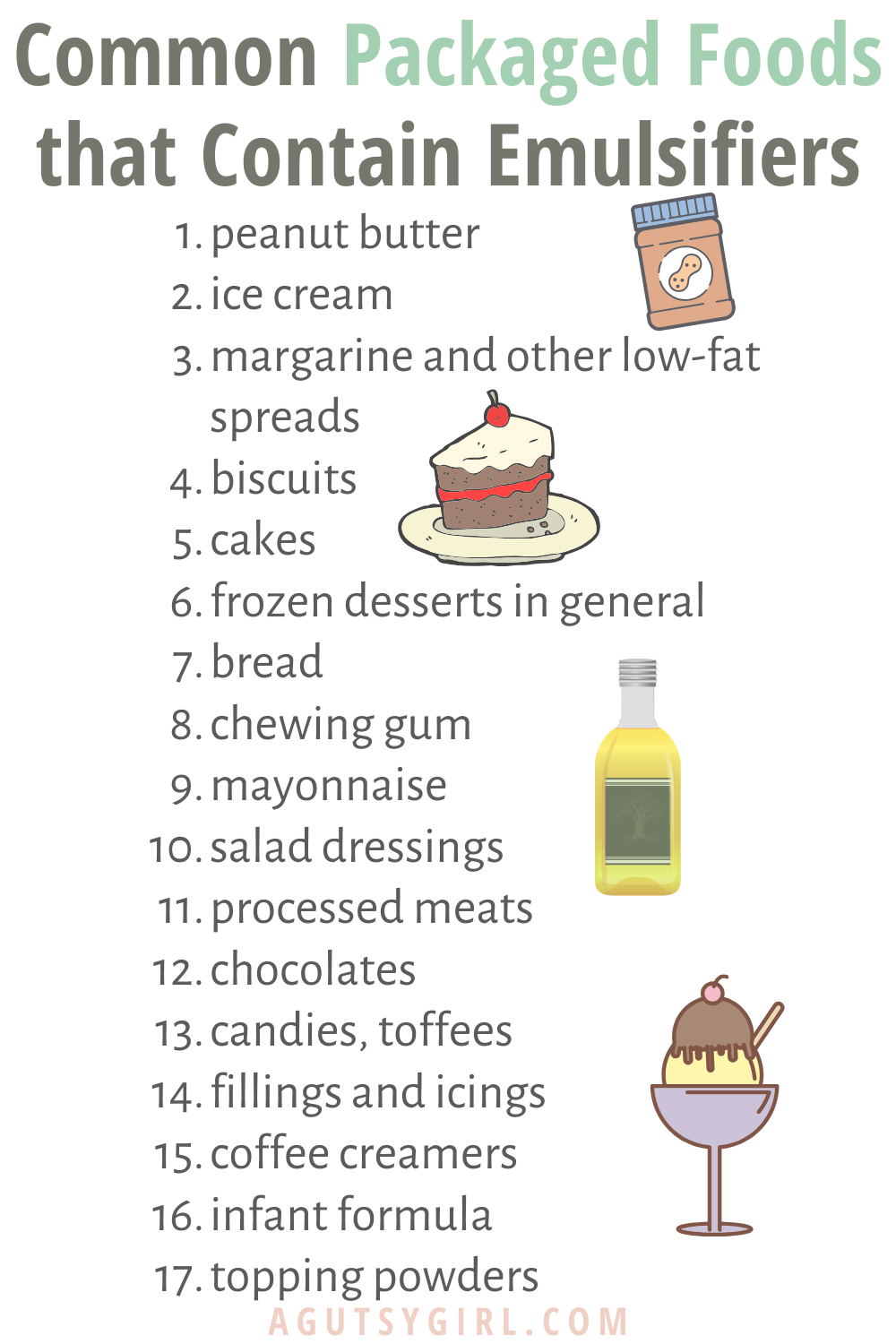The Science Behind Emulsifiers and Their Relevance in Modern Manufacturing
Emulsifiers play an important role in modern-day manufacturing, acting as the unsung heroes that blend oil and water for a broad array of items. As customer preferences change towards cleaner labels, the demand for cutting-edge emulsifiers is growing.
What Are Emulsifiers?
Emulsifiers are necessary representatives in the world of food and product production, acting as the adhesive that binds two otherwise immiscible liquids, like oil and water. Usual instances include lecithin found in egg yolks and soybeans, and mono- and diglycerides utilized in numerous processed foods.

When you whip up a salad dressing or delight in a creamy treat, emulsifiers help keep that perfect texture. Without emulsifiers, lots of foods would certainly divide, leading to undesirable textures and flavors.
The Chemistry of Emulsification
When you mix oil and water, you may discover they don't blend conveniently; that's where the chemistry of emulsification enters into play. Emulsification happens when small droplets of one liquid disperse in an additional, developing a stable mixture. This occurs because oil and water are immiscible because of their differing polarities-- water is polar while oil is non-polar. To conquer this difficulty, emulsifiers are employed.
These molecules have a hydrophilic (water-attracting) head and a hydrophobic (water-repelling) tail. When you include an emulsifier, its particles position themselves at the oil-water user interface, decreasing surface area stress and enabling the droplets to blend. The emulsifier forms a safety layer around each bead, stopping them from integrating back right into different layers. Comprehending this chemistry is vital for accomplishing security in products like dressings, lotions, and sauces, making emulsification important in contemporary production.
Types of Emulsifiers
Numerous types of emulsifiers play crucial roles in stabilizing blends of oil and water. You'll commonly experience 2 major categories: all-natural and artificial emulsifiers. Natural emulsifiers, like lecithin from egg yolks or soy, are derived from plants and animals, making them preferred in foodstuff. They're normally considered much safer and much healthier alternatives.
On the various other hand, synthetic emulsifiers, such as mono- and diglycerides, are chemically crafted to enhance security and service life. They're generally used in processed foods and aesthetic items.
Additionally, you may discover non-ionic, anionic, and cationic emulsifiers, each with unique homes that impact their efficiency. Non-ionic emulsifiers, as an example, work well in a vast array of pH levels, while anionic emulsifiers tend to execute better in alkaline problems. Comprehending these types can help you pick the ideal emulsifier for your particular application.
Mechanisms of Emulsion Development
Recognizing just how solutions develop is important for creating steady mixtures of oil and water. Solutions take place when you distribute tiny droplets of one liquid into another immiscible liquid, such as oil in water. This process requires energy, frequently supplied with frustration or mixing. When you introduce an emulsifier, it minimizes the surface stress in between both liquids, permitting them to blend more easily.
The emulsifier particles have a hydrophilic (water-attracting) head and a hydrophobic (oil-attracting) tail. When you add an emulsifier, these particles prepare themselves at the oil-water user interface. The hydrophilic heads connect with water, while the hydrophobic tails secure right into the oil. This produces a barrier that supports the droplets, stopping them from integrating.
Applications of Emulsifiers in Different Industries
Emulsifiers play a vital function across various industries, making your favored foods smoother and much more enjoyable. In cosmetics, they enhance product appearance and security, making certain a pleasurable application experience. And also, in drugs, they assist supply vital components effectively, enhancing general efficacy.
Food Sector Makes Use Of
While you might not realize it, emulsifiers play a crucial duty in the food industry, boosting the structure, security, and rack life of numerous products. In baked products, emulsifiers improve dough handling and preserve moisture, resulting in a much better appearance and prolonged freshness. By making certain harmony and high quality, emulsifiers are significant to providing the delicious items you enjoy every day, making them an indispensable ingredient in contemporary food Check Out Your URL production.
Aesthetic Solutions Advantages
When it comes to aesthetic solutions, emulsifiers are essential for creating items that really feel luxurious and perform successfully. You'll discover that emulsifiers enhance product stability, preventing separation and lengthening shelf life. Generally, emulsifiers play a vital duty in providing premium cosmetic items that meet your charm requirements.
Drug Applications Review
In the pharmaceutical sector, emulsifiers are essential for formulating efficient medicines. You'll discover emulsifiers in different dosage types, like creams, lotions, and fluid suspensions, boosting the bioavailability of medications.
The Influence of Emulsifiers on Product High Quality

By guaranteeing steady emulsions, you reduce the danger of wasting and extend rack life, inevitably saving you time and cash. You'll likewise locate that emulsifiers can boost the bioavailability of site here energetic ingredients in your products, making them a lot more reliable for customers.
Moreover, they enable you to produce innovative solutions that fulfill varied consumer demands. Whether you're crafting a luscious dressing or a lavish lotion, emulsifiers are essential for achieving the desired results. In short, by comprehending and leveraging the effect of emulsifiers, you can significantly elevate the high quality of your products.
Future Patterns in Emulsifier Advancement
As the need for cleaner labels and sustainable items climbs, the advancement of new emulsifiers is readied to advance significantly. You'll observe a change towards plant-based and natural emulsifiers, driven by customer preferences for ingredients that are ecologically pleasant and much less refined. Advancements in biotechnology will likely boost the functionality and performance of these emulsifiers, enabling manufacturers to create steady formulations with less ingredients.
You may likewise see an increase in multifunctional emulsifiers that not just maintain emulsions however additionally improve flavor, structure, or nutritional value. This pattern might streamline ingredient checklists while boosting item performance.
Additionally, with advances in nanotechnology, emulsifiers might be crafted at the molecular level to achieve unprecedented security and performance. Emulsifiers. As you check out these fads, you'll locate that the future of emulsifier advancement is not nearly functionality, however likewise concerning accepting sustainability and transparency in components
Frequently Asked Inquiries
Are Emulsifiers Safe for Consumption in Food Products?
Yes, emulsifiers are normally risk-free for usage in food items. They have actually been extensively studied and authorized by food safety authorities, so you can appreciate your favorite foods without bothering with their influence on your health and wellness.
Can Emulsifiers Be Derived From All-natural Sources?
Yes, you can obtain emulsifiers from all-natural resources. Ingredients like lecithin from egg yolks or soybeans and casein from milk prevail. These click to find out more all-natural emulsifiers help stabilize blends without artificial ingredients, making them popular in different items.

Just How Do Emulsifiers Affect Shelf Life of Products?
Emulsifiers stabilize mixtures, stopping splitting up and perishing - Emulsifiers. By keeping harmony, they prolong products' service life, making certain quality and quality. You'll observe that emulsifiers aid keep your favored foods and cosmetics doing well over time
What Are Possible Side Results of Emulsifiers?
You may experience gastrointestinal problems when consuming items with emulsifiers, as they can interfere with digestive tract germs. Some researches recommend prospective links to swelling or allergic reactions, however extra study is needed to completely recognize these results.

Exist Alternatives to Standard Emulsifiers?
Yes, there are options to conventional emulsifiers. You can check out alternatives like all-natural periodontals, starches, or lecithin. Each alternate offers distinct buildings, so experiment to discover what jobs best for your specific application.
Comments on “A Beginner's Guide to Emulsifiers in Household Products”